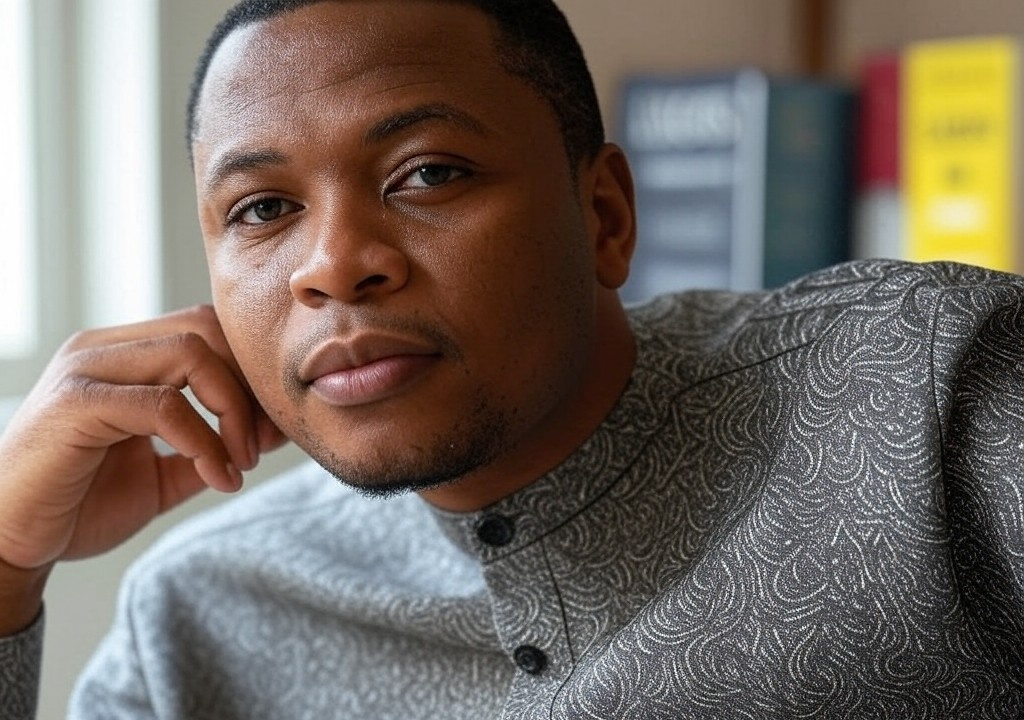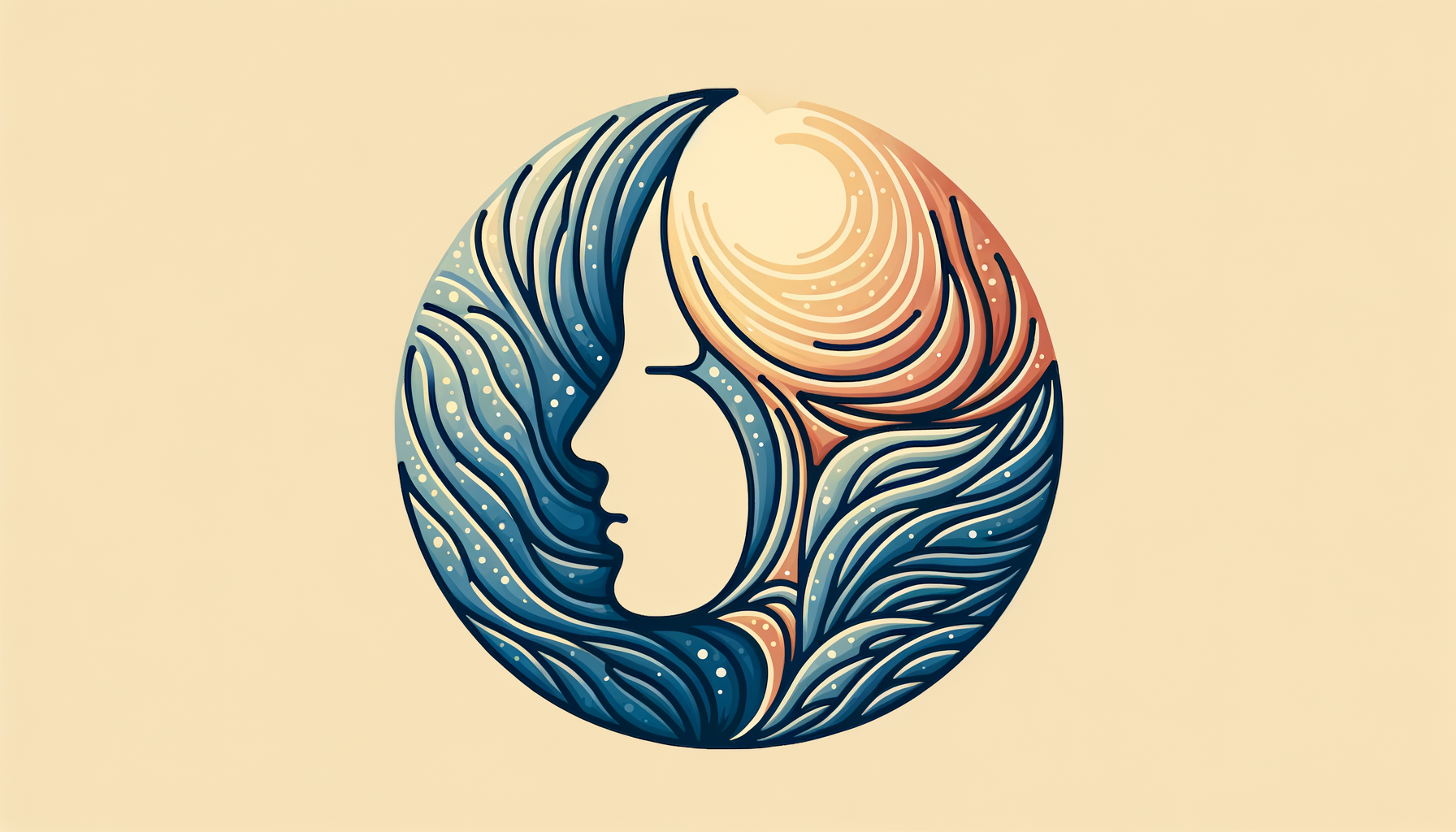The First Time I Felt Seen
For as long as I can remember, I’ve always known how to blend in. It’s a skill you pick up when you’re the new kid with the “funny accent” who shows up just before Thanksgiving in a Brooklyn fourth grade class where everyone already has their friend groups locked down tight. I learned to laugh at the right moments, agree with the loudest voice in the room, and keep quiet about the pounded yam and egusi soup in my lunchbox, even though I missed the flavors like crazy.
By the time I hit my twenties, I was a certified chameleon, adjusting myself to fit whatever situation I found myself in. College parties? I could make myself the witty guy with a beer in hand. The office holiday party from my brief post-grad stint in retail? Sure, I was the polite team player ready with safe, neutral banter about the weather. Romantic situations? Oh, I knew the moves—just enough charm to keep things light, enough mystery to avoid getting in too deep.
But there’s only so long you can play the part before you start to feel like a stranger in your own skin. And then, something happened—or rather, someone happened—that changed everything.
A Stranger with Sharp Eyes
The first time I met her, I was standing in a too-long line at an upstate New York coffee shop. I had gone upstate to work on what I swore was my “great Nigerian-American novel” (never mind that at the time all I had written was the first sentence: “It is not because I feel like it, Adeola, it is because I must.”)
She was balancing three books and a bag of oranges, of all things, while somehow managing to scroll through her phone. I have no idea what prompted me to say it, but I looked at her—probably too long—and said, “Fela Kuti once said, ’Water, e no get enemy.’ But I feel like oranges might.”
I braced for the awkward pause that 99 percent of my humor tends to earn. But she laughed—not the polite, obligatory laugh you give a stranger to be nice, but a full-body laugh, complete with head tilt and shoulder shake, that made her oranges nearly spill out of the bag and onto the floor. She looked at me and said, “What else does Fela Kuti say? Give me more wisdom.”
I don’t even know how long we ended up talking that day. But I do know it wasn’t superficial. By the time we stepped out onto the snowy street, I had already forgotten my coffee order.
When the Mask Slips
Here’s the thing: I didn’t understand yet what was happening. I just knew that when she made a comment about my “writer stare” a week later on our second meeting (a bookstore this time—on-brand for us), I didn’t feel the need to deny it.
“The way you’re looking at me,” she said, smirking, “It’s like you’re mentally editing how this moment would sound on paper.”
“That’s kind of my thing,” I admitted, instead of brushing it off like I always did with other people. “I overanalyze everything. I think it’s the only way I survived being an immigrant kid in Brooklyn. You have to pre-plan the words before you mess them up.”
Her expression softened, and for a moment, I felt uncomfortably exposed. Like when someone catches you singing off-key in the shower. Except this wasn’t embarrassment—it felt like relief. Like coming up for air after holding your breath for far too long.
Not Just Being Seen—Being Recognized
One evening over dinner with her, she told me she thought I was “quiet-bold.”
“Quiet-bold?” I repeated, raising an eyebrow.
She shrugged without missing a beat. “Yeah, like you’re understated but unshakeable. You don’t need to be loud about what you care about—it’s more like you carry it, quietly, all the time.”
Quiet-bold. I had never heard those two words put together like that. But it felt right, like trying on a jacket you didn’t even realize was your size until it fit perfectly. Around her, I felt like I wasn’t auditioning for a role anymore. I could just be.
What I Learned About the Power of Being Seen
That relationship didn’t last forever—we parted ways a couple of years later when her job demanded a cross-country move, and I realized that I still had work to do on creating my own sense of home. But the feeling I had in those moments—the feeling of truly being seen—stayed with me. It taught me lessons I’ve since carried into friendships, relationships, and even my writing.
Here’s what I’ve learned for anyone looking to experience the same:
1. Drop the Script
Real connection starts when you stop anticipating what they might want to hear and start saying what’s true to you. The hardest part is being okay with the idea that not everyone will vibe with that version of you—and that’s okay. The ones who stick around are the ones who matter.
2. Look for Your "Quiet-Bold" Moments
What are the words someone has used to describe you that felt like they reached a deeper part of you than most compliments usually do? Write those down. Seriously. Keep them somewhere you can see them. Those words can act like tiny anchor points when you’re feeling lost or uncertain about yourself.
3. Ask Questions Beyond the Surface
Do you know what’s better than being seen? Seeing someone else. Take a pause from waiting to be heard and try figuring out what it means to truly “recognize” another person. A well-placed question—“What’s your favorite thing about yourself?” or “When do you feel most alive?”—can shake someone out of their auto-pilot and show you their layers.
4. Get Comfortable Showing Yourself
It’s easy to want to mirror energy on first dates or friendships to “fit in.” Trust me, I lived there for way too long. But being seen starts with being willing to show. It’s the equivalent of holding up a sign that says, “This is me, flaws, quirks, and all. Want to see more?”
A Quiet-Bold Conclusion
Sometimes being seen doesn’t feel like fireworks or some loud, cinematic declaration. It’s quieter than that. It’s in how someone laughs at your joke that no one else gets or how they pick up on the little things you didn’t even know were part of you. It’s in how they name something about you that feels like truth.
That day in the coffee shop, I was gearing up to go—yet again—unnoticed. Another nameless face passing through another nameless moment. But then she saw me. Not just the surface me, but the me that experiments with sentences late at night, dreams big and chases those dreams in small, loving steps.
The first time I felt truly seen, I realized one thing: I didn’t want to go back to blending in. And neither should you.




















